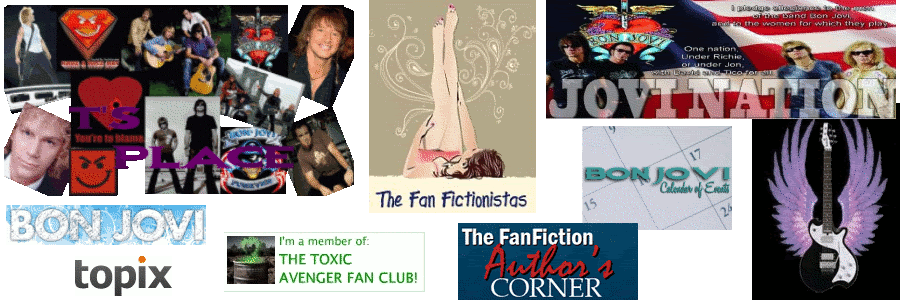JonBon on NPR
On December 21, Jon was interviewed by Terry Gross on NPR's Fresh Air.
GROSS: That's Bon Jovi from their new CD, "The Circle." Jon Bon Jovi, welcome to FRESH AIR. It's a pleasure to have you here.
Mr. BON JOVI: Thank you. It's nice to be here.
GROSS: I think of this as kind of like your hard times album, like kind of songs for hard times.
Mr. BON JOVI: Well, it's a social commentary. And if we are, in fact, as a nation going through hard times, then I think you've hit it on the bulls-eye. But it was an opportune time when you just look out the window, read the newspaper or watched the news, every day was another opportunity to write a song about what people are going through today.
GROSS: You've done a lot of stadium concerts over the years, and I think you have a lot of them ahead of you. Are there times that you have to convince yourself before going out on stage that you have the energy that day and the - just the kind of energy and belief to go on stage in front of 70,000 people?
Mr. BON JOVI: You know, I think that there's a little misconception there for those who aren't behind the microphone to understand, and that's simply that whenever I perform, be it for 50 or 50,000, you want to be the very best that you can be. And sure, there are going to be those days that you're a little more physically tired, and that could just be jet lag or monotony.
You know, you have to condition yourself mentally, physically. The preparedness is half the battle, and leaving home for a year or so at a time, every time for a quarter-century now, you have to get yourself ready for it. And I'm the guy that has his fingernails embedded in the driveway as they're dragging me up it to leave.
(Soundbite of laughter)
Mr. BON JOVI: But On that very first night, when I get to the hotel room for that first time, and, you know, you close the door with that suitcase, you go oh, right. This is what I do for a living. And then it all just comes right back, and it's riding a bicycle again.
GROSS: How do you prevent your voice from having been shredded after so many years of concerts? Particularly the stadium concerts, where I imagine it's very tempting to over-sing, because even though you know you're amplified, the room is so big.
Mr. BON JOVI: Yeah, it's true. It's like anything else. You know how to work the muscles properly. And like I said, there's a great physical commitment, and there are sacrifices that are made. And the cute, soundbite version is that no matter what the adage is, the last sentence of it is: And then the singer went home.
So everyone else can go out and do what it is that they want to do. They can always just stand there and beat on the drums and beat on the guitars, and it's a lot more physically demanding when your vocal chords are the size of a thumbnail, and that's what supports 150 crewmembers, as well as the band and, of course, the two-or-so million people every year that want to come out and see it. So you have to make sure that that instrument is well-tuned at all times.
GROSS: You know, in the interviews for the book and the DVD, you talk about how you travel with steroids for your throat, and then you always convince yourself not to use them.
(Soundbite of laughter)
Mr. BON JOVI: Mm-hmm. It's like that glass case. You know, it says break here in case of emergency.
The full transcript is here. The podcast isn't up, and a note on NPR's site says it isn't available due to contractual reasons. If it ever surfaces, however, I'll snag it and put it up for you.
~ Hath

















0 comments:
Post a Comment